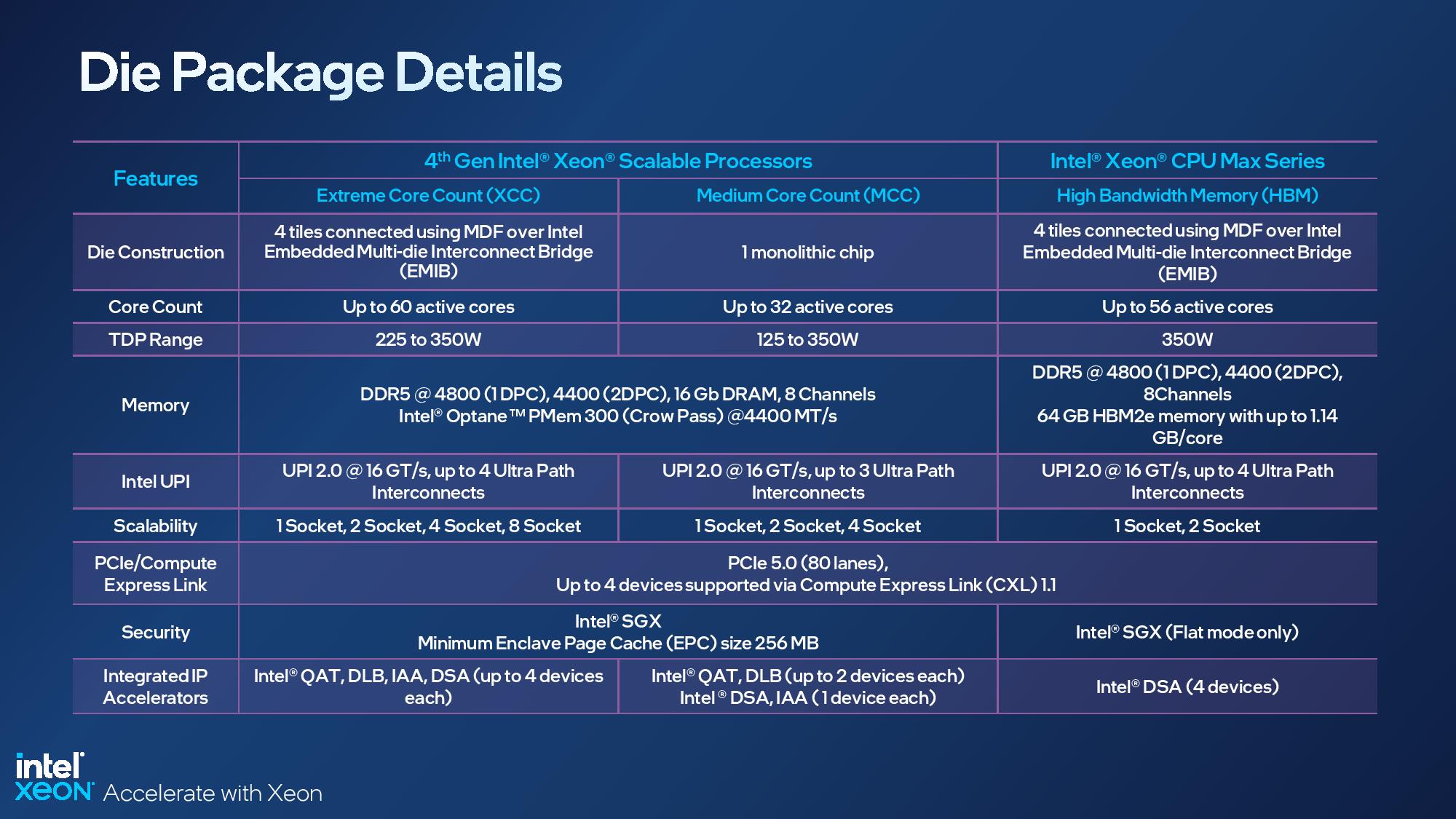
We reported last week that Intel Intel has confirmed that it had paused shipments of some of its fourth-gen Xeon Sapphire Rapids processors due to a newly-discovered bug, but it hadn't set a specific date for shipments to resume. The company has now issued a statement to Tom's Hardware indicating that it has developed a firmware fix and has resumed shipments.
"Last week, we informed you of an issue on a subset of 4th Generation Intel Xeon Medium Core Count Processors (SPR-MCC) that could interrupt system operation under certain conditions. Out of an abundance of caution, we temporarily paused some SPR-MCC shipments while we thoroughly evaluated a firmware mitigation. We are now confident the firmware mitigation addresses the issue. We have resumed shipping all versions of SPR-MCC and are working with customers to deploy the firmware as needed." — Intel spokesperson to Tom's Hardware.
Intel originally paused the shipments of a subset of its oft-delayed fourth-gen Sapphire Rapids processor line after it discovered a bug that "could interrupt system operations under certain conditions," but the company still hasn't shared specifics of the now-mitigated issue.
Intel said that it decided to pause shipments of the impacted processors out of an abundance of caution while it worked on the firmware fix. Discovering new bugs in already-shipping processors certainly isn't uncommon, but it is uncommon for those types of bugs to lead to a halt in shipments, implying that this was more than a garden-variety erratum. Intel did say the firmware mitigation isn't expected to have any performance impacts, though.


Intel's fourth-gen Xeon has two types of underlying designs: The XCC package, which employs four compute tiles (die) to create a single chip, and the MCC package, which uses a single monolithic die. As shown in the slides above, the MCC design is used for chips up to 32 cores, which are the source of high-volume sales for Intel, while the XCC variants are used for the halo chips between 36 and 60 cores.
The bug impacted only the models built on the MCC die. Intel hasn't confirmed how long it paused shipments, though unofficial reports indicate that the pause began in mid-June. Intel says it is now resuming shipments of the impacted models and is distributing its firmware fix to its partners, meaning that the company won't be required to replace any of the chips it has already shipped to customers.







